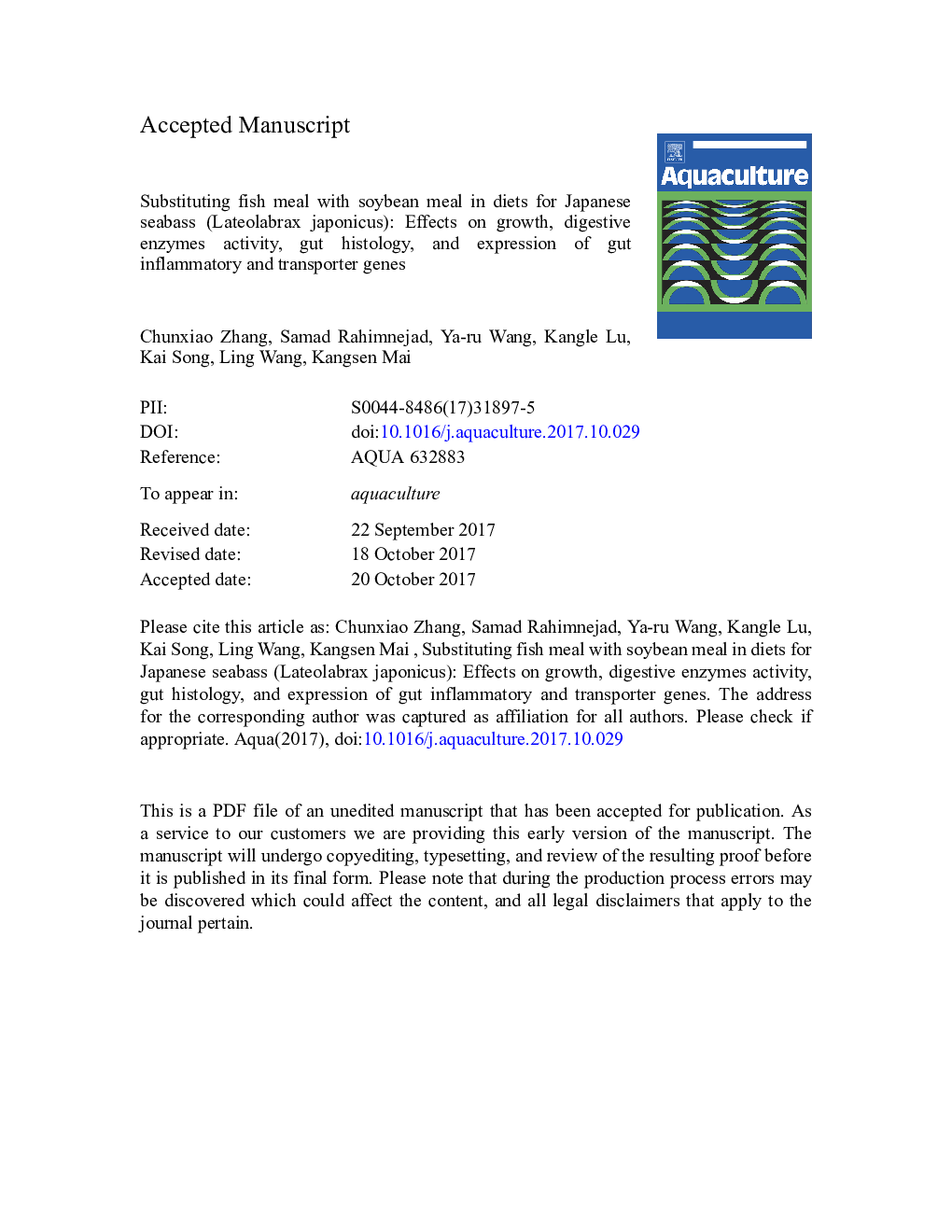| Article ID | Journal | Published Year | Pages | File Type |
|---|---|---|---|---|
| 8493601 | Aquaculture | 2018 | 53 Pages |
Abstract
The aim of this study was to evaluate the effects of substituting fish meal (FM) with soybean meal (SM) on growth performance, digestive enzymes activity, gut histology, and intestinal pro-inflammatory and transporter genes expression in Japanese seabass (Lateolabrax japonicus). Totally three test diets were prepared: a basal FM-based diet and two SM diets by substituting 50 or 75% of FM with SM (FM, SM50 and SM75 diets). Each diet was fed to triplicate groups of fish (6.67 ± 0.03 g) to apparent satiation twice a day for eight weeks. The results showed no significant (P > 0.05) differences in growth performance between FM and SM50 groups while further increment of replacement level to 75% led to a significantly (P < 0.05) reduced growth rate. However, both SM50 and SM75 groups showed significantly lower feed efficiency and protein efficiency ratio than FM group. Significantly lower digestibility coefficients of dry matter and protein were achieved in the group received SM75 diet and digestibility coefficient of gross energy decreased in both SM50 and SM75 groups. Also, SM75 fed fish exhibited remarkably lower survival rate than the other treatments. SM75 group had lower whole-body protein and lipid contents than FM fed fish. Drastic decreases in protease, amylase and lipase activities were found in foregut of SM groups compared to FM group. Offering SM75 diet resulted in significant reduction of villus height, villus thickness, and muscular thickness in foregut and midgut. A remarkable increase in serum D-lactate concentration was detected in SM groups, and serum diamine oxidase activity elevated in SM75 group. Replacement of FM resulted in elevated expression of gut pro-inflammatory genes such as TNF-α, IL-1β, IL-2, IL-8 while an opposed trend was observed for the anti-inflammatory gene IL-4. Expression of intestinal transporter genes including PepT1, LAT1 and SLC1A5 were significantly up-regulated by SM replacement. To conclude, replacing 50% of FM with SM did not significantly influence growth performance, but adverse effects were found on feed utilization, digestive enzymes activity and gut health being more evident at the higher replacement level.
Related Topics
Life Sciences
Agricultural and Biological Sciences
Aquatic Science
Authors
Chunxiao Zhang, Samad Rahimnejad, Ya-ru Wang, Kangle Lu, Kai Song, Ling Wang, Kangsen Mai,
